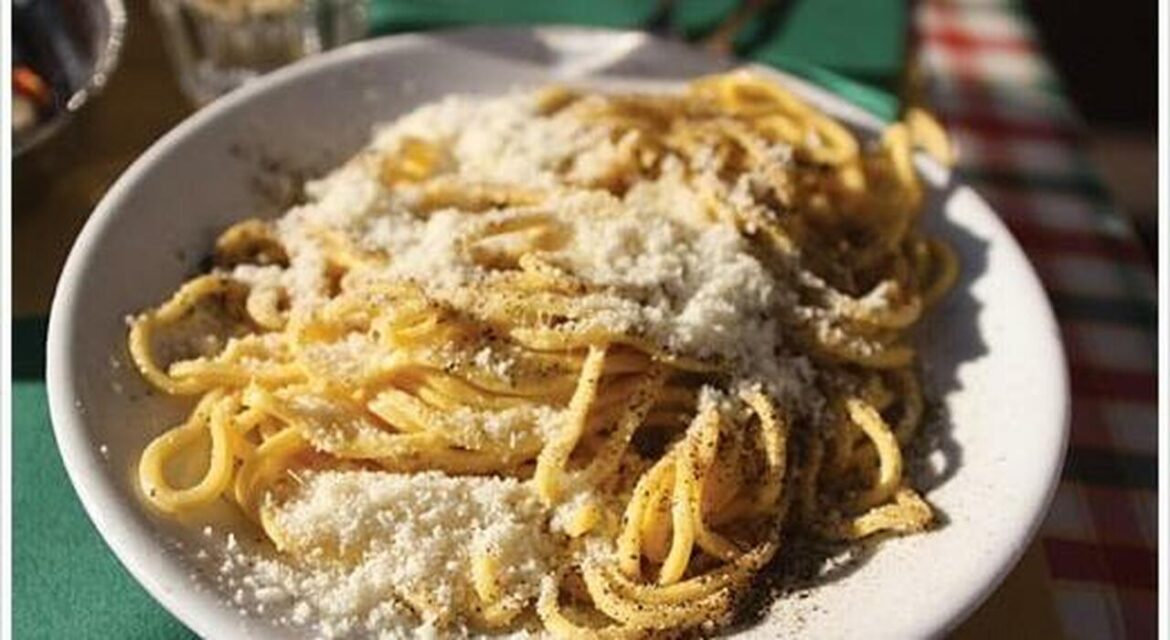Hands off the cacio e pepe. The expats from the Capital now in London are not standing by as the classics of Roman cuisine are misrepresented across the Channel. A frequent misstep for those accustomed to traveling abroad is encountering carbonara with cream and mushrooms and – as happened with the BBC’s error on their web section dedicated to cuisine – adding butter to cacio e pepe. They write to Il Messaggero, which recently denounced the error of the British broadcaster, expressing all their resentment against what, for an Italian, sounds like insults to the majesty of cuisine.
Davide is one of them. He speaks of a ‘deep trauma for us Italians in London.’ After all, Checco Zalone was right in the film Quo Vado, when in front of overcooked spaghetti in an Italian restaurant abroad, he took down the ‘Italian Cuisine’ sign and told the chef, ‘Do not take Italy’s name in vain,’ insulting the Norwegian chef (who had cooked the pasta for thirty minutes) with a ‘Viking.’ These are ‘squalid customs from across the Channel that denote poor taste, not in a metaphorical sense but plainly moral and ethical,’ writes Davide.
THE EXPERIENCE
Stefano Calvagna has been commuting between Rome and London for nine years. In the British capital, he opened Ci tua! a Roman trattoria. He is known for being a director, screenwriter, and actor. Among his works as a director are Non escludo il ritorno dedicated to Franco Califano (starring Gianfranco Butinar, who recently passed away), and last year’s Bombolo, core de Roma, dedicated to Franco Lecher. He is someone immersed in the soul of the Capital. ‘I am shocked to see here in London Italians who have been forced to adapt a cacio e pepe because the same customers ask to add butter and many other ingredients. The carbonara with mushrooms, cream, and the bacon they themselves use for breakfast, is the most shocking example. I can’t understand how it’s possible to accept a culinary compromise of the Roman tradition, violating it. For us, it is a Holy Grail that must first be understood and appreciated. We must make Roman cuisine known to the world correctly, otherwise, the same Londoners, when they become tourists, will ask for culinary monstrosities that make no sense once they arrive in the shadow of the Colosseum.’ On the menu of the restaurant on Portobello Road, it is clearly stated: ‘Our pasta is fresh, homemade, and served in one way, al dente. If you want it more cooked, please ask our staff. Otherwise, you can go to the hospital where you will find it overcooked.’ So, he is one of the culinary purists who today brings Made in Italy to London with his chefs Alessandro Pasquini and Yuri Ceresato. ‘I hope that Italian authorities and associations of Italians abroad can push to realize this ‘truth operation’ not only around cacio e pepe but also for all traditional dishes that are daily desecrated,’ adds the director and restaurateur. According to Calvagna, the situation directly involving the Roman and Lazio economy has worsened with Brexit. In fact, Pecorino Dop and guanciale amatriciano have seen a significant price increase after the United Kingdom’s exit from the European Union. ‘Prices have risen by at least 20%, and many restaurateurs, to save money, rely on local products to make carbonara, gricia, amatriciana, and cacio e pepe. The result is that they put sheep cheese and bacon into the pasta, adding British cream and butter.’
© ALL RIGHTS RESERVED
This article is automatically translated


Dining and Cooking